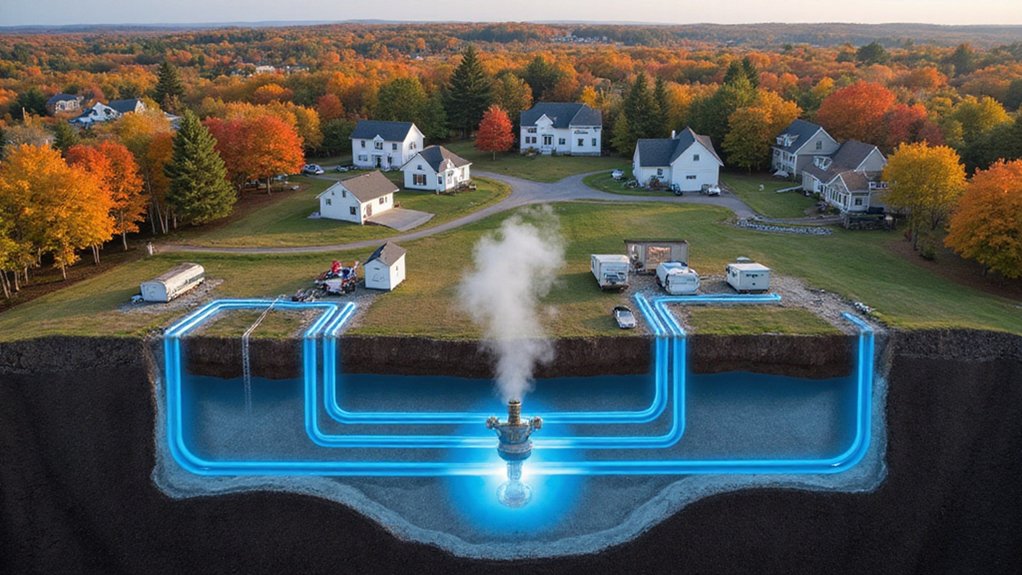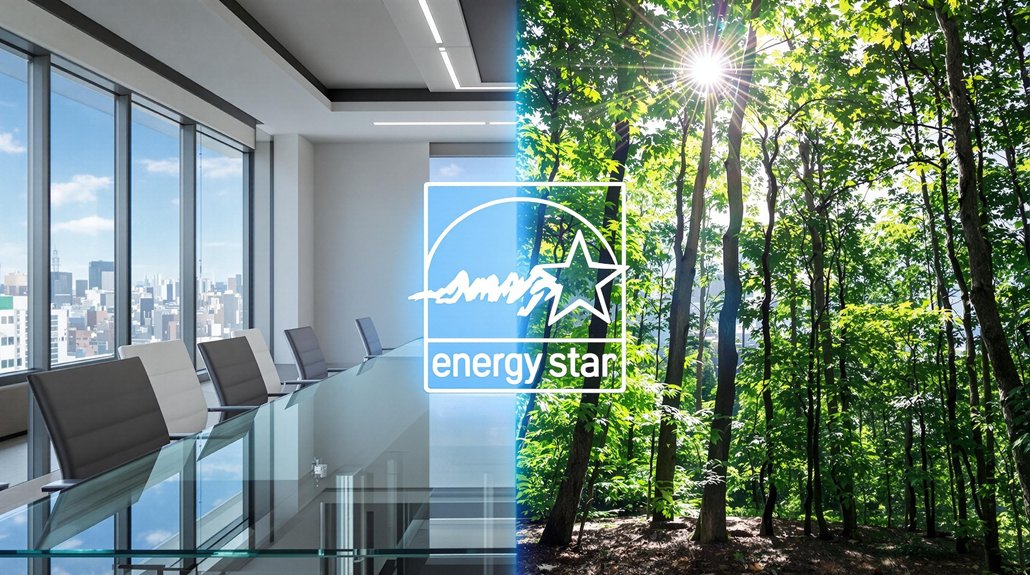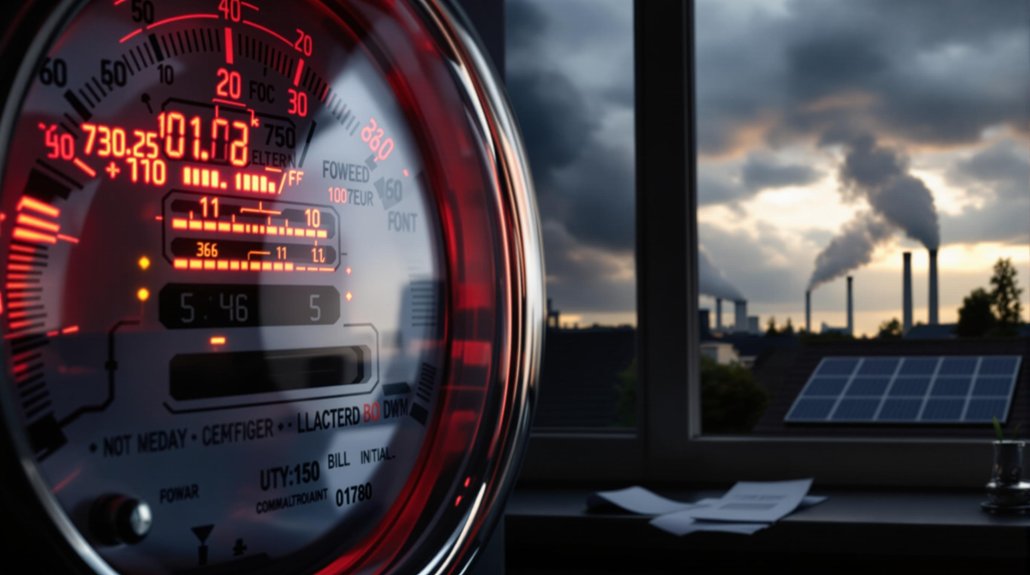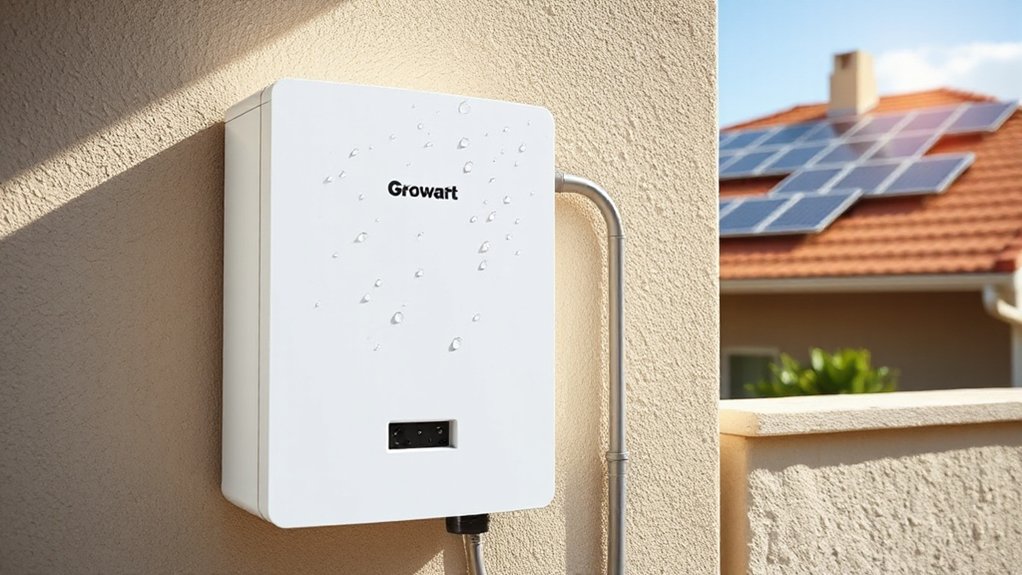Maine’s crushing its heat pump goals—104,000 installations and counting. The state’s basically flipping off Big Oil one house at a time. They’re even exploring underground thermal networks that tap into Earth’s heat, like some sci-fi movie but actually working. Massachusetts already proved these systems slash energy costs by 20%. With rebates hitting $9,000 for low-income families, Maine’s making it rain efficiency money. The underground transformation runs deeper than anyone expected.
While most states are still debating climate goals, Maine just blew past its heat pump target two years early. The state hit 100,000 installations in 2023, not 2025. Now they’re shooting for 275,000 total during Governor Mills’ tenure. That’s ambitious, even for Maine.
The numbers tell a story that heating oil companies probably hate. By July 2023, roughly 104,000 heat pumps were humming away in Maine homes, thanks to rebate programs through Efficiency Maine and MaineHousing. If they nail their new target, over 320,000 heat pumps will be keeping Mainers warm. That’s a lot of households ditching their oil tanks.
104,000 heat pumps now hum in Maine homes, replacing oil tanks statewide.
But here’s where it gets interesting. Maine’s not stopping at individual heat pumps. They’re digging deeper – literally. The legislature just passed a bill to explore thermal energy networks, basically community-wide geothermal systems that pull heat from the earth, lakes, or even wastewater. Think of it as neighborhood heating on steroids.
These aren’t pie-in-the-sky ideas either. Small towns and college campuses already use network geothermal systems. Massachusetts ran a pilot that cut energy costs by 20% and carbon emissions by 60%. Those are real numbers, not projections. Maine’s cooler climate actually makes these underground systems work better. Physics is funny that way.
The timing matters. About half of Maine households still burn heating oil, which is both expensive and dirty. Every heat pump installed means less oil burned, lower carbon emissions, and cheaper electricity bills – even for neighbors who don’t have heat pumps yet. That’s the whole point of “beneficial electrification.” Everyone wins when the grid gets cleaner and more efficient. The transition to heat pumps showcases how renewable technologies have dramatically dropped in cost while improving in performance.
Maine formed a commission to study geothermal potential, with recommendations due by January 2026. They’re also part of a five-state coalition working to slash heat pump costs and train more installers across New England. Because what good is a heating transformation if nobody knows how to install the equipment?
The Governor’s Energy Office isn’t waiting around. Their new efficiency initiative promises to cut electricity costs statewide. Low-income families can snag rebates up to $9,000 for heat pump installations, while higher earners still get up to $3,000 back. Maine’s betting big that going electric beats burning oil. So far, they’re winning that bet. Out West, companies like Fervo Energy are already proving geothermal’s worth by powering Google data centers with carbon-free electricity from their Nevada operations.
References
- https://www.mainepublic.org/climate/2025-06-09/maine-to-explore-geothermal-energy-potential
- https://www.iso-ne.com/static-assets/documents/100023/heat_fx_2025.pdf
- https://www.canarymedia.com/articles/energy-efficiency/maine-heat-pump-electric-costs
- https://cleaneconomytracker.org/wp-content/uploads/2025/06/2025-06-03_Maine-Fact-Sheet.pdf
- http://www.maine.gov/governor/mills/news/after-maine-surpasses-100000-heat-pump-goal-two-years-ahead-schedule-governor-mills-sets-new









